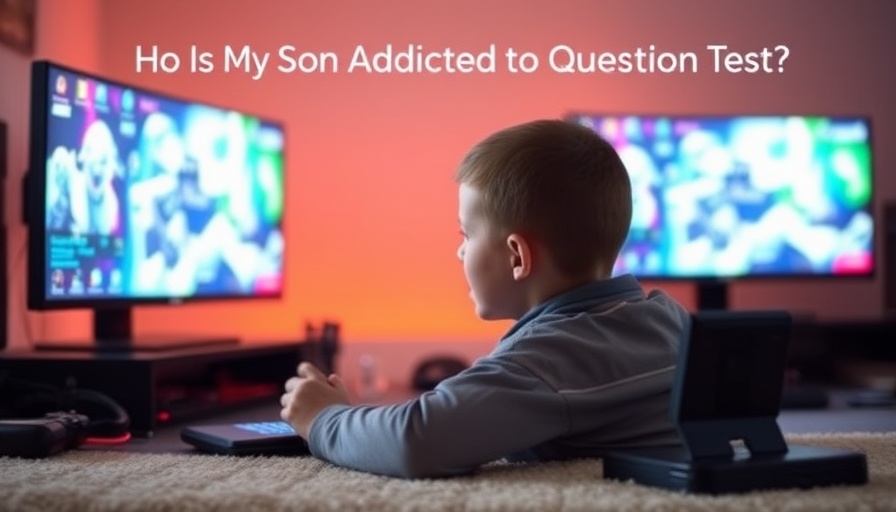
Understanding Gaming Addiction in Young Children
Recent studies indicate that gaming addiction may be affecting children much earlier than we ever realized. A new study from Macquarie University reveals that children as young as ten are showing signs of Internet Gaming Disorder (IGD), which could potentially impact around 100,000 children in Australia. This alarming trend raises essential questions for parents about screen time and the well-being of their children.
Surprising Findings on Screen Time
According to the research, Australian children are spending up to nine hours per day on screens. The study observed nearly 2,000 students in Years 4 to 8 and found about 4% exhibiting signs of clinical or sub-clinical gaming disorder. This indicates that the issue isn't limited to teenagers but begins significantly earlier in primary school.
The Impact of Gaming Addiction
Children experiencing IGD tend to prioritize gaming over other activities, often withdrawing from social interactions and reporting difficulties in reducing their gaming time. This behavioral addiction can have serious repercussions on their mental health and overall development. Moreover, 10% of students surveyed were identified as at moderate to high risk of smartphone addiction, emphasizing a broader issue concerning digital consumption.
The Changing Landscape of Children's Screen Use
Researchers like Brad Marshall lead the conversation around these troubling findings. Previously, most studies focused on older teenagers, but his work aims to shift that narrative, highlighting that younger students are also increasingly affected. With 350,000 children at risk of smartphone addiction, the implications widen even further, particularly as many children may under-report their usage in surveys.
Parental Insights: Encouraging Device-Free Activities
For parents concerned about their children's screen time, encouraging device-free activities can be a proactive step. Activities such as outdoor play, sports, arts and crafts, or family board games can help reduce reliance on screens and emphasize personal interaction. These activities foster not only creativity but also help develop social skills and physical health.
Implementing Screen Time Limits
Establishing clear screen time limits within the household can be crucial in managing children's exposure to devices. Experts recommend that parents engage in open dialogues with their children about their screen habits and set specific times for gaming or web use. More importantly, establishing a family media plan can create a balanced approach to technology that fits each child's needs.
Recognizing Signs of Addiction
Being attuned to the signs of gaming addiction in children is vital. Signs include prioritizing gaming over homework or family time, showing irritability when not allowed to play, or secrecy about internet use. Parents should monitor their child’s behavior and look for these red flags, intervening when necessary to ensure a healthy balance between gaming and other activities.
The Role of Education and Awareness
Schools can also play a significant role in preventing gaming addiction. Educators can provide insights and promote discussions around healthy screen use. If parents and schools work in close partnership, they can create supportive environments and resources for children navigating digital landscapes.
As our world becomes more digitized, understanding the implications of early screen exposure is critical. By staying informed and fostering healthy habits, parents can help their children enjoy the benefits of technology without falling prey to its addictive pitfalls.
It’s time for parents to take proactive measures concerning their children’s screen time and gaming habits. Don’t wait for the problem to escalate; start discussing the importance of balance today!
 Add Row
Add Row  Add
Add 




Write A Comment